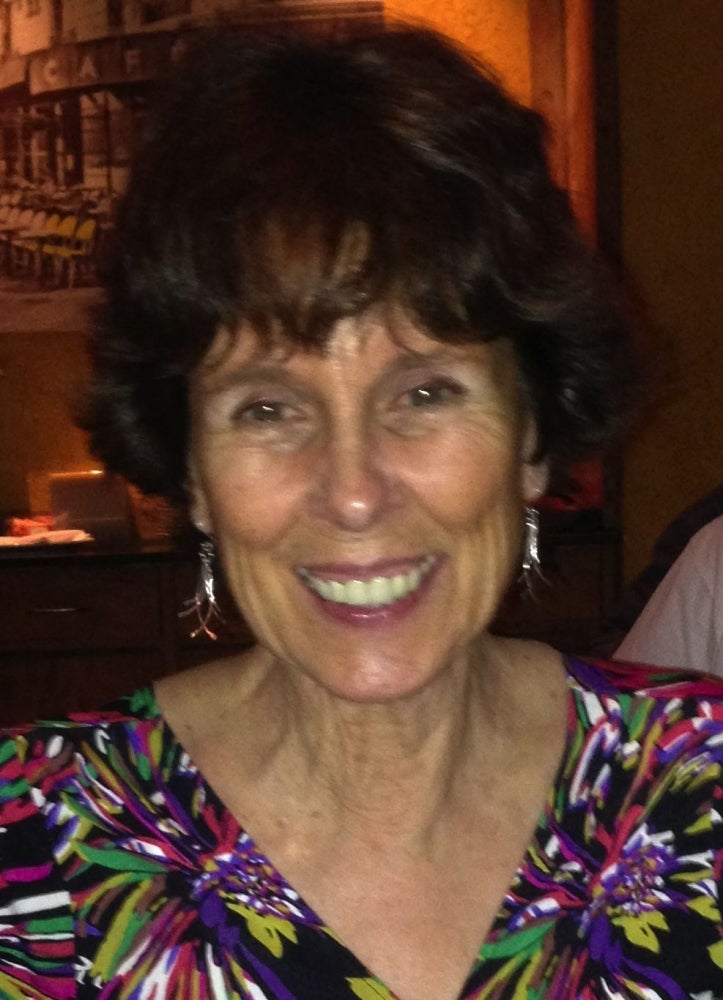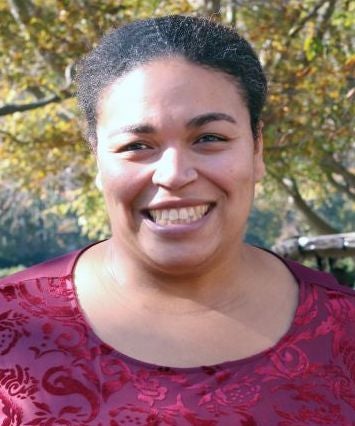
The Definition of Respect

When the Mohawk people of Canada realized their young people weren’t learning their native language, they called Marianne Mithun. As one of the country’s foremost scholars in indigenous languages, the professor in UC Santa Barbara’s Department of Linguistics jumped at the chance to help.
“They said, ‘First of all, we need a writing system,’ ” she recalled. “I said, OK, we can do this two ways: I can make you one or I can teach phonology — the principles of how to make a good writing system — and we can do it together. They said, ‘OK, we’ll learn that phonology.’ ”
Fast-forward four decades, and Mithun has been elected to serve as the 95th president of the Linguistic Society of America (LSA). She will be installed in early January at the group’s annual meeting in New York City. She will serve as vice president/president-elect in 2019, as president in 2020 and as immediate past president in 2021.
Mithun, who said her nomination for the post “came out of the blue,” will sit on the LSA’s executive committee, which serves as the board of directors/trustees for the group. The LSA and its nearly 4,000 members support the advancement of the scientific study of languages.
Her election to the LSA leadership is a fitting tribute to Mithun’s work with indigenous communities in North America and Austronesia. Their languages, she said, are unique, ancient and provide “a whole different view of the human mind and how to make order out of chaos in the world, what concepts are and how they fit together. It’s absolutely thrilling.”
But time is running out on them, Mithun warned. Many indigenous people — such as the Mohawk, Navajo, Lakota and Hopi — still have a good number of first-language native speakers. But in most communities, the kids aren’t learning them as first languages or learning them at all.
“The thing is, maybe you have a lot of speakers of the language, but if they’re all the same age, you lose the language all at once,” she said. “So this is a race against time. I work with communities to document the speech of the good, first-language speakers as they use it all the time. We’re not just going in and saying, ‘How do you say, “I see it, you see it,” ’ but letting them talk, seeing how they interact when they’re choosing what to say and how to say it.”
For Mithun, understanding a language is the means to preserving and revitalizing it. “I train language teachers,” she said.
Consider the Mohawk. “These were amazing people,” she said. “We figured out what all the distinctive sounds were that needed to be written. Because when you learn a new language, you have to learn a whole new way of putting this kind of kaleidoscope of sounds into categories, because you hear differently when you hear a different language. Some things you have to differentiate in English you don’t in Mohawk, and the other way around. You have to pay attention to sounds you don’t even notice in English.”
She designed a writing system that the first-language speakers took home and taught another speaker. People learned the system in 20 minutes, she said.
Mithun, who has been at UC Santa Barbara for 32 years, said linguists estimate there were almost 300 different languages in North America at contact with Europeans. “They’re often as different as English and Arabic,” she noted. “People think Indians all speak the same language, but they’re very, very different. Mohawk is totally different from Navajo, and that’s different from Lakota and that’s different from Hopi. They’re all totally different. Absolutely amazing. Some don’t have that many different sounds, and some have huge numbers of different sounds.”
Some might find the diversity of indigenous languages intimidating, but not Mithun. In fact, that’s their appeal. Asked what interested her in the field originally, she didn’t hesitate: “Everything. They’re just so amazing, just whole worlds of a different way of looking at the world, but they have all these principles and all these regularities and patterns that are just so different. It’s like this set of patterns of patterns of patterns that all makes sense once you’re inside but seem like chaos from the outside.”
A Public Treasure
The LSA has presented Anne H. Charity Hudley, the North Hall Endowed Chair in the Linguistics of African America at UC Santa Barbara, its Linguistics, Language and the Public Award for 2019. The honor recognizes her work “that effectively increases public awareness and understanding of linguistics and language,” the group said.
“Anne Charity Hudley has devoted her career to three goals — providing support and guidance for minority undergraduates, leading the way in effective teaching of linguistics, and teaching K-12 teachers how to provide guidance to minority students while giving them the language skills they need,” the group continued.
In announcing the award, the LSA highlighted the importance and impact of Charity Hudley’s publications, including “Understanding English Language Variation in U.S. Schools” and “We Do Language: English Language Variation in the Secondary English Classroom.”
“Through these publications,” the group said, “Charity Hudley has positively influenced the classroom experience of users of nonstandard varieties of English. Through her dedication to the recruitment, guidance, and mentoring of minority students, she has made a lasting difference not only in these scholars’ careers but to the field as a whole.”
Mary Bucholtz, professor and chair of the campus’s Department of Linguistics, said the award was well-deserved.
“Anne Charity Hudley works tirelessly to bring the insights of linguistics to a wide audience, including educators, policymakers and students,” she said. “In addition to her publications, she has produced online lectures, websites, apps and social media posts. All of her work helps advance the crucial goal of social justice for speakers of racialized and marginalized varieties of English. The Department of Linguistics is very proud to count her among our faculty.”
In addition, the LSA presented its 2019 Early Career Award to Andrea Berez-Kroeker, who received her Ph.D. in linguistics from UCSB. Berez-Kroeker is now an associate professor of linguistics at the University of Hawai’i at Manoa.
“UCSB linguists are leading the field!” Bucholtz said.



